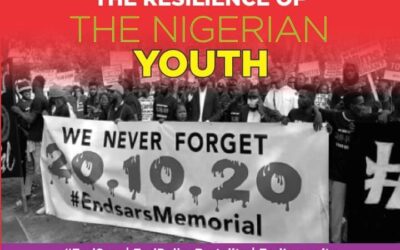PREAMBLE
The National Association of Seadogs (NAS) International, Netherlands Chapter held the first of its Annual Seminar at the Institute of Development Studies (ISS), The Hague, Netherlands on the 22nd May 2004.
The theme of the Seminar, which attracted wide and impressive representations of the Nigerian community and friends in the Netherlands, the United States, the United Kingdom and neighboring European Countries was ‘Good Governance and the Nigerian State: The way forward.’
For a people to realize its potential, it must have an effective leadership and governance that is nurtured and emboldened by a common vision and aspiration. Given the present drift of the Nigerian state, well meaning Nigerians must not hold their hands in submission to nothing, and do nothing. There is an urgent need to effect change to halt the present state of affairs and to make Nigeria a place to benefit her people in the present and future generation. It is with this conviction that guided the thrust of this seminar. In recognizing the multi-dimensional and mutually reinforcing symptoms of bad governance in Nigeria, the seminar essentially sought to explore the basic causal issues.
KEY ISSUES/PROBLEMS OF GOVERNANCE IN NIGERIA
- Lack of Trust: Trust is at the core of any successful society or individual. Societies do not develop or govern well if there is no trust among the leadership and the led. Nigerians need to ask themselves if they have got leaders that they have engendered their implicit trust or can trust. It is precisely for the fact that we do not mutual trusts ourselves that we are not responsible to others and therefore cannot account for resources that have been publicly committed to our care as public servants. Lack of trust fires the embers of suspicion and disunity, and thus promotes the culture of parochial sectional, sectarian, and personal interests in governance.
- Lack of Accountability: In a society in which sovereignty presumably rest in the people, it is indispensable that its officials be regarded and regard themselves as servants, not masters of the people. It is only natural for those who serve to give account of their stewardship. Presently, there are hardly consequences for abuse of public resources and diversion and conversion of our national assets to personal use. It is a sad fact that such public officers usually regard call or request for any public officer to ‘give account’ as witch-hunting. We have not developed or encouraged a culture of accountability in governance. The Nigerian people generally do not call or insist that those who rule must also give account of their stewardship.
- Corruption: Corruption is a direct consequence of lack of trust, responsibility and accountability. With increasing sadness we have watched successive government pay lip service to the fight against corruption with the ever-increasing mockery of launching one anti-corruption crusade after another. Corruption is not unique to Nigeria, however, the important questions is what are we doing as individuals/groups to actively fight against corruption and more importantly fight against the social values, attitudes and “conventions” that encourage and exacerbate the incidence of corruption in the country?
- Inept legislative and judicial system: We recognize that the country’s ineffective legislative and the judicial system have enabled and reinforce poor law enforcement in the country. Good governance would remain elusive without these critical components, which suppose to not only provide internal checks and balances in governance but also advance the course of creating a just and egalitarian society where the rule of law is held supreme. Little wonder why all the “Judicial Commissions”, “Code of Conduct Bureau”, “Public Complains Commission”, Economic and Financial Crime Commission”, Independent Corruption Practices Commission”, etc. have remained ineffective.
- The failure of the Civil Society: Civil societies in the country have neither provided effective societal watchdog platform to complement institutional checks and balances nor have they mobilized ordinary Nigerians to participate in governance at all levels especially at the grassroots. There is no effective grassroots participation in governance, hence there is a major disconnect between government policies and the peoples interest. The enormous gap between the leadership and the led is easily discernable. This unfortunate situation is partly attributable to the present poor development of civil society in the country.
- The absence of a social morality: We believe that the greatness of a nation, like that of a human being, lies not in its size or its possession, but in the quality of its vision and the strength of its character. Our collective experience has shown that we lack both. We have neither genuinely defined a common vision for ourselves nor have successive leadership shown enough interest and will to pursue this fundamental requirement of nationhood. We have utterly failed to look inward into our history, traditional values and collective wisdom for solutions to our problems. This moral vacuum has encouraged the festering sores of tribalism, partisan greed, parochial interests’ etc. resulting in bad governance in the country.
{mospagebreak}
THE WAY FORWARD
There was a common unanimity that the Nigerian State is not well as it is evident that most Nigerians yearn for change. We believe that the problems of Nigeria are systemic in nature and thus require incisive fundamental re-thinking and measures to remedy the situation. We must go back to the base to determine when we missed the boat. We must go back to lock-in into the trajectory of good governance that we have missed. The following measures were unanimously agreed upon:
- Deliberations on what we want to change: We must step-up deliberations and discussions on what we want to change. We should take these discussions into our churches and mosques; our shops and offices; villages and towns; among colleagues and friends; within the various social groups, club and associations that we belong; at every opportunity.
- Sharing of common vision and aspiration: Great things are often initially created in dreams and visions of individual(s). Those that should bring about desirable change to Nigeria must be able to dream. They must be able to not only have visions and aspirations of the society they want to create but must also be able to share these visions, dreams and aspirations among their fellow Nigerians. Those who dream must be able to dream far! We believe the Country is destined for greatness and we must begin to communicate this to one another.
- Dialogue and Decision: These activities should culminate into a national dialogue of different groups representing all Nigerians to renegotiate the basis of our union and thus lay the strong desirable foundation future development into a dynamic, strong, just and united country. This dialogue by whatever name it is called must be unfettered and without any preconditions. Discussions must be frank where good reasons should give way to better ones. We believed that decisions reached at this dialogue would remove the systemic vestiges of poor governance in the country.
- Implementation: After such dialogue and decision. There should be no waiting around. Let all those who deliberated. Dreamt and saw vision, let all those who raised platforms for the dialogue start implementation. These are some of what we desire;
- Our country must live in durable peace and security and agree on the fundamental principles and structures for our association as a nation. We want a country where there would be mutual trust between our different peoples / ethnic and religious groups, and between the leadership and the led.
- The issue of human capacity building must be placed at the top of our national agenda. Our country must promote education and literacy skill training, as a means of enhancing sustainable development. The inadequacy of relevant facilities in our schools and colleges is unacceptable and should be addressed as a matter of urgency.
- Basic Infrastructural development must be accorded the priority it deserves. Good road network, water supply, power supply, transportation system etc. are fundamental requirement for social and economic development in any modern society.
- We must re-orientate ourselves to new sets of values, cultivate selflessness, family values and a support structure that will encourages everyone to do well and have a sense of national pride. Such beliefs motivate people; they give people comfort and confidence in themselves and in the determination of a common national identity.
- Accountability: The proper conduct of the public business requires utmost transparency. The people should know how their resources are being managed. Public office is a public trust. We need to reinstitute genuine reward culture and sanction culture in public service. The importance of proper recruitment and training of public servant cannot be over-emphasized. Public officials should be continuously accountable to the public with appropriate institutions and effective mechanisms put in place to guarantee it.
- We believe that building civil societies is a sine qua non for instituting genuine democratic culture and good governance. The daunting task of educating and raising the consciousness of Nigerians towards ensuring that common wealth is used judiciously in serving the people is one that the civil society must begin to assume. Poor governance and leadership would continue to plague Nigeria until when we Nigerians are ready to take back our country.
- An open, free and honest electoral system is fundamental to the attainment of a democratic society. Furthermore, an effective government requires a strong, responsible, and competitive political party system. As a corollary, grassroots political awareness must be promoted because effective participation and representation in governance requires a responsive and articulate citizenry.
- There must be a responsive public service, with appropriate balance between a high quality political staff and strong professional career services. The primary loyalty of all public servants must be to the Nigerian people, through the institutions of government, and not to any individual leader.
- Our government must address the issue of economic empowerment. The people should be equipped with the ability for sustenance. Government should encourage investments by providing proper enabling environment for economic development.
- We must show urgent responsiveness in laundering our external public image. Our bad image in international circles is an enormous burden that we can do without.
- Efficient law enforcement system must be instituted to protect rights, lives and property of Nigerians, with every citizen guaranteed equal protection before the law.
A CALL TO IMMEDIATE ACTION
In conclusion, the seminar rose with a rallying call on both the Nigerian government and fellow Nigerian citizens to immediate action.
To the Government:
We have noted with continuous dismay the growing tendency of the government to stifle basic freedom of speech and expression in the country. We wish to remind the government that these rights are inalienable for all Nigerians and are in fact held sacrosanct by the very constitution they swore to protect. A situation where well meaning Nigerians are terrorized and harassed by the government for professing different political views not only negates the very idea of good governance but also threatens our nascent and fragile democracy that was secured at a heavy price.
The Government must begin to accept the need for genuine national dialogue and reconciliation to resolve major internal contradictions facing the Nigerian state. Fostering true national dialogue and reconciliation in the country is the only way to build trust among Nigerians and re-establish their faith in governance to advance peace, security and progress in the country.
We charge the government to take a critical look at this communiqué and rather than view it as an opposition view, endeavor to digest the contents herein as the voice of a traumatized people of the Nigerian state that were forced to emigrate due to the lack of enabling and virile environments and conditions in Nigeria. It is not enough to globe trot and ask Nigerians to come back home, the seriousness of the government should be evident in a conspicuous improved governance of the entity called Nigeria.
To All Nigerians:
We believe in the power of a committed individual. We enjoin every Nigerian that desire progress to stand up and be counted. As Balarabe Musa once said “…it is not enough to believe in or even to hanker after progress. A progressive must do more than dream about progress; he must also buckle up, roll up the sleeves of his shirt and struggle dauntlessly for bringing into concrete existence his dreamed progress.”
We charge Nigerian residents in abroad to start building viable Nigerian communities in Diaspora. They should educate themselves on how the system works where they live and must begin to build relationships with the political institutions therein. In seeking effective integration into host communities, we would develop networks that could be beneficially employed to advance democratic culture in Nigeria.
We must begin to explore the legal and civil institutions in host countries to fight official corruption in Nigeria, track and uncover our stolen assets, expose those responsible, explore possibilities of recovering these stolen resources, and generally make it difficult for any public officer to launder money in countries where we are resident.
You are being called to action as individuals.
Let our faith in our convinctions be strong.
Let our faith in our common destiny be stronger.
We must start reaching out for each other.
Let the dialogue start – in our homes, our schools, our work places, our churches, our markets, our different communities and in the streets of our cities. We must begin to engage our various families, friends, colleagues, religious leaders, community leaders, individuals and groups on the other side of the street in this dialogue.
The current fight for the soul of the country is one that all well meaning Nigerians must join hands to win.
Our common fate is in our hands.
Long live all ye that that fight against moribund conventions!
Long live all ye that fight for attainment of a Just Society!
Long Live the Federal Republic of Nigeria!
Signed:
Essay Folami
General Secretary
NAS International, Netherlands Chapter
June 2004



